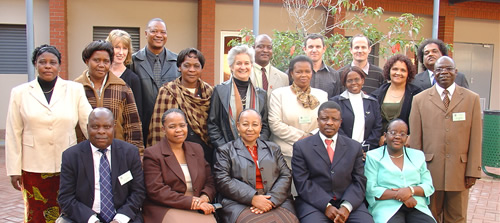
|
|
A Regional Open Schooling Consortium - Working Together to Overcome Some Key Educational Challenges in the SADC Region Jennifer Glennie reports below on a recent workshop she attended in Botswana. Southern Africa faces numerous educational challenges as a region. Key amongst these is to seek to ensure that schooling systems prepare learners adequately for the rest of their lives, with a particular focus on ensuring that the skills and competences that they learn during primary and secondary education enable them to secure routes into sustainable livelihoods, becoming integrated citizens within the countries' mainstream economies. Significant attention has been devoted in recent times to the provision of ‘Education for All' (EFA), which focuses on ensuring that all children participate in primary schooling. Achievements in EFA, however, place the focus squarely on secondary education system. The challenge in this regard is threefold:
The above is an extract from a Statement of Intent which emerged from a recent workshop of over 20 delegates from across the SADC region, all with an interest in open schooling, held at the quietly professional campus of BOCODOL (the Botswana College of Open and Distance Learning) in Gaborone. Under the auspices of the SADC Centre for Distance Education, with support from the Commonwealth of Learning, and building on a concept document developed by Neil Butcher, delegates engaged in a robust debate on whether, to what purpose, and how we might work together. Evident throughout the workshop was the huge amount of expertise and experience demonstrated by the delegates. The SADC region can be proud of the successes already achieved in this area.
SAIDE is excited to be part of the Consortium and looks forward to contributing in which ever ways are possible . |
Unsubscribe from this newsletter | Subscribe to this newsletter
Click here to download the full newsletter in PDF format (351KB)
© SAIDE 2005

